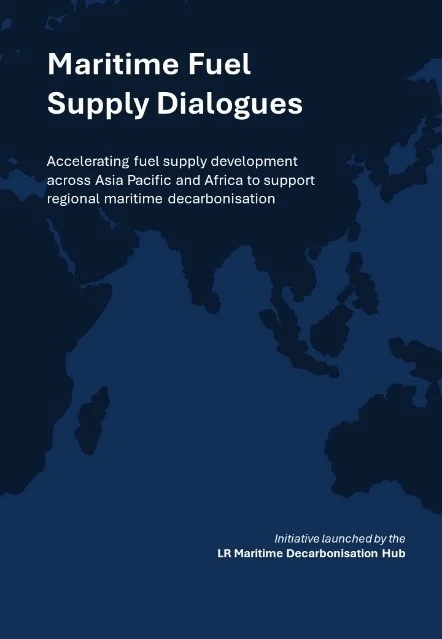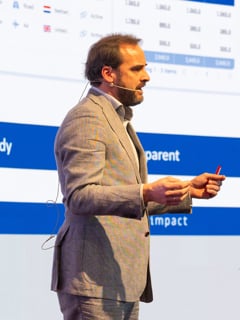With more than 42 green shipping corridors established globally, and several trading across in the Indian and Pacific Oceans, including The Silk Alliance green corridor cluster, concerted effort is needed to get these initiatives beyond conception into implementation and execution. Such progress will centre on tapping into the potential of hydrogen-based fuels and driving the development of sustainable fuel infrastructure, which in turn presents the challenge of securing sufficient and timely investment.
According to the High Level Panel for Sustainable Ocean Economy, investments in shipping infrastructure require an additional $1 trillion of finance by 2030 and $2 trillion over 2030 and 2050. However, the International Energy Agency (IEA) reported only 4% of potential low emission hydrogen production had taken a final investment decision (FID).
There is a clear gap between energy infrastructure reaching final investment decisions, says LR Maritime Decarbonisation Hub’s Senior Green Initiatives Lead, Ahila Karan. This poses questions on what is required to ensure that offtake agreements are in place and creating a landscape that supports multiple stakeholders’ ambitions, she explains.
With many of the countries in the Africa and Asia-Pacific region facing “a very high cost of capital”, attracting investment is crucial to getting clean fuels off the ground. All of which calls for clear policies, collaborative frameworks, and risk-sharing mechanisms to unlock the opportunity.
To address this challenge, the LR Maritime Decarbonisation Hub launched the Maritime Fuel Supply Dialogues in April. This roundtable discussion, hosted by the Ocean Stewardship Coalition of the United Nations Global Compact, brought together energy and transport ministries – including Kenya, Namibia, Oman, India, Philippines, South Korea and Singapore – to discuss opportunities for hydrogen development for shipping fuels, recognising that Asia Pacific and Africa hold strong potential for hydrogen production.
The Maritime Fuel Supply Dialogues initiative sees a need to aggregate first mover efforts at a regional level to create stronger infrastructure business cases. As well as scaling demands from maritime hubs and other sectors at a regional level, regional hydrogen development may present other regional synergies and co-benefits that help to move fuel supply and bunkering infrastructure investment cases forward. The dialogues series is tasked to facilitate greater coordination and alignment across the value chain to help uncover these opportunities.

While national and regional policy and carbon pricing frameworks are emerging in the Global North – notably Europe’s Fuel EU Maritime policies and the US Inflation Reduction Act tax incentives in place – the Maritime Fuel Supply Dialogues hope to offer a platform for focusing on the opportunities in Asia Pacific and Africa.
The next step, says Karan, is for the dialogue series is to bring in private investors alongside energy and transport ministries to understand the challenges from the investor side.
Cost competitiveness of fuel supply development is dictated by the cost of capital and other perceived geographical risks, so clear and supportive policy signals can help to realise the infrastructure development opportunities across Asia Pacific and Africa, particularly where access to capital is limited.
The Maritime Fuel Supply Dialogues will hold its next roundtable meeting in September 2024, as a pre-cursor to COP29 dialogues. Participation will be widened to other ministries and departments, as well as energy and fuel producers and suppliers, financial institutions and key stakeholders and consortia along the maritime value chains.








